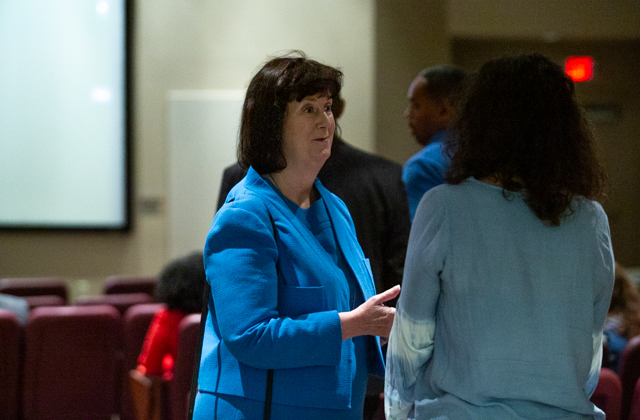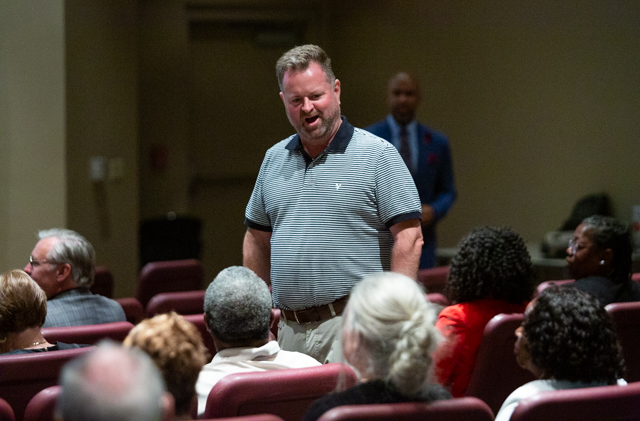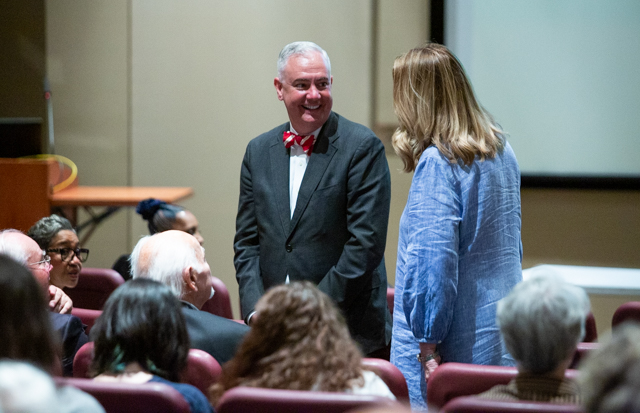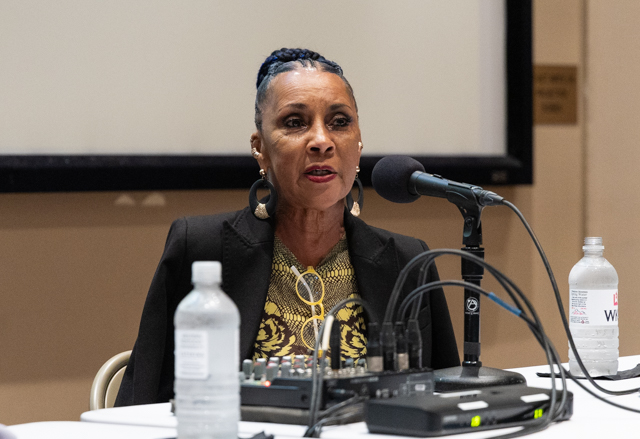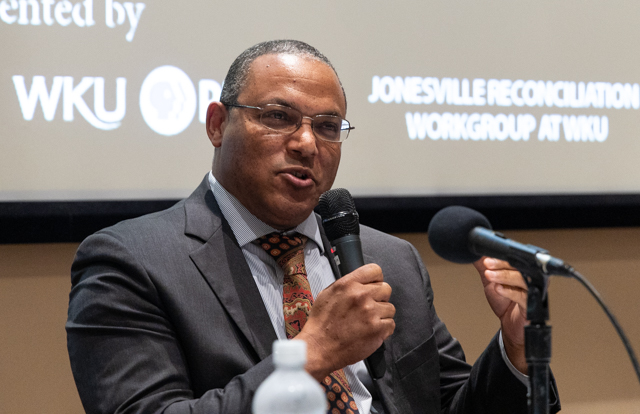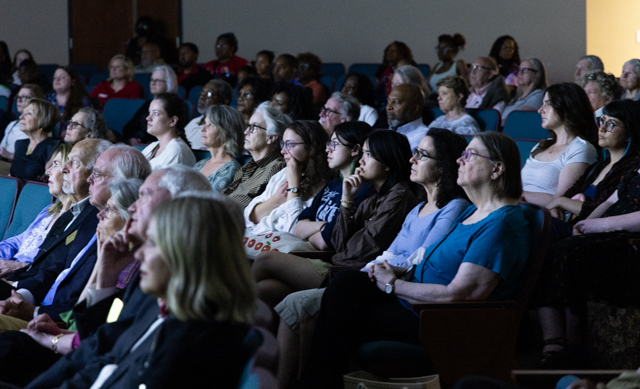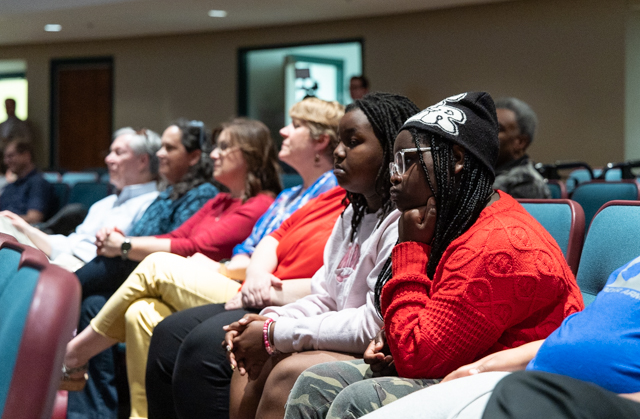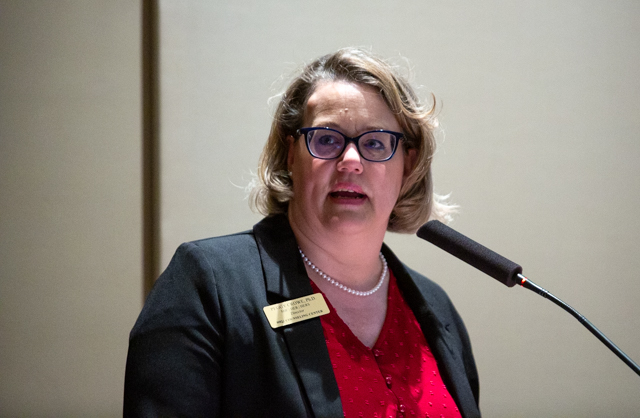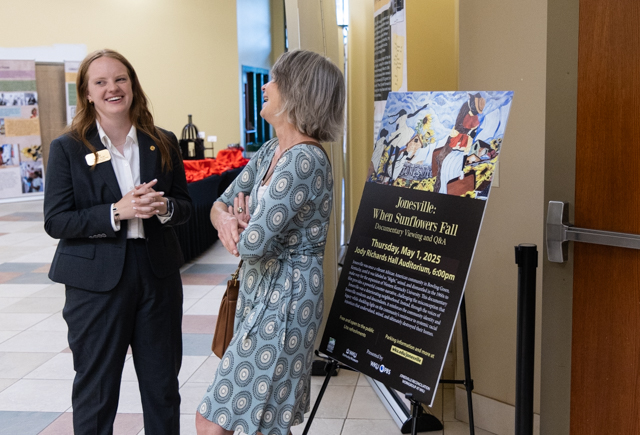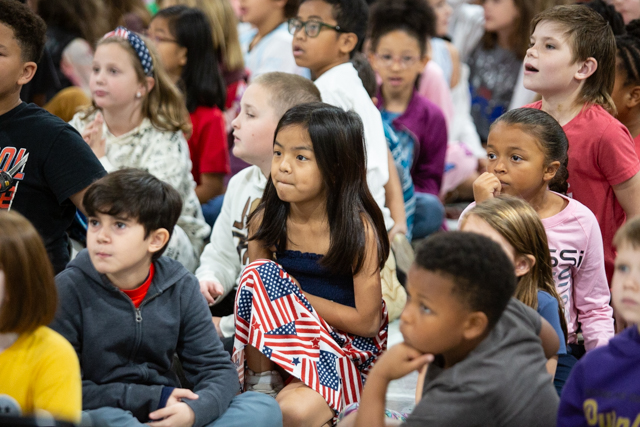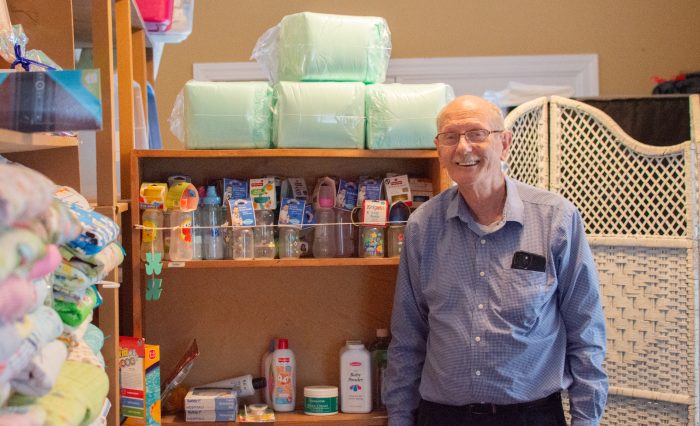Public screening held for ‘Jonesville: When Sunflowers Fall’
Published 5:10 am Sunday, May 4, 2025














DAVID MAMARIL HOROWITZ
david.horowitz@bgdailynews.com
Communities of color have had to carry knowledge and stories in their bodies because resources haven’t been devoted to maintaining spaces for those stories.
Bowling Green resident Akisha Townsend Eaton recalled that statement, from renowned thought leader Elizabeth Alexander, in the new documentary “Jonesville: When Sunflowers Fall,” which had its public screening Thursday.
Townsend Eaton’s mother, the recently deceased Angela Townsend, was one among some 400 to 500 people who saw their predominantly Black neighborhood, Jonesville, razed in the ’50s and ’60s so Western Kentucky University could expand.
“For as long as I can remember, my mother ensured that I carried the memory of Jonesville with me every day until I too carried it around in my body,” she said.
As Jonesville residents pass away in the decades since the neighborhood’s dismantling, those who can recount stories firsthand are becoming fewer. Still, descendants in the film made it evident they’ll preserve those stories – and the documentary became a space for them.
The 55-minute WKU PBS film – an initiative of the Jonesville Reconciliation Workgroup, established under WKU President Tim Caboni in 2022 to assess how to address remaining issues from Jonesville’s dismantling – carefully interweaves historical documentation as it maps the neighborhood’s history and pertinent context: the Civil War, what Jonesville was like, WKU’s history, a key lawsuit, a neighborhood church’s opposition to the dismantling, the razing itself, the national context of urban renewal, the impacts of the dismantling on generational wealth, why it matters to know what happened, and more.
Trending
An audience of nearly 100 – students, faculty, administrators, around 10 Jonesville descendants and other community members – responded with a standing ovation lasting longer than most.
“I loved it,” said lifelong community organizer Johnalma Barnett, a Jonesville descendant. “Made me even happier when they kept zooming in on my mother when she was 13 years old.
“I grew up listening to the stories. I heard everything, kind of like Akisha. When I was like 6 years old, I started hearing the stories. I wasn’t living in Jonesville – it was gone – but my family talked about it constantly, the things that happened. So it’s like I lived there too through my family.”
PBS WKU gave community members more agency over the story than is normal. It acquired funding through the nonprofit The Peace Studio to train Jonesville descendants Townsend Eaton and David Greer as well as Alice Gatewood Waddell, whose family grew up in the neighborhood, in film production so they could oversee the film as producers.
“We tried to push the boundaries beyond (…) presentation, to agency,” film director Josh Niedwick said.
A standout comment in the evening Q&A with producers came from Greer. He noted how much the university has grown and benefited the region, citing last September’s report that found WKU brought $528.4 million in income in fiscal year 2022-23 – and advocated, to much applause, for Jonesville descendants to be a part of WKU’s strategic plan.
“All of these companies, the university itself, has received a very large return on this investment – what return on investment have the peoples, the descendants of Jonesville, received when we talk about reconciliation?” said Greer, making clear that his comment meant nothing harmful toward leadership, and was directed at institutions as a whole, such as WKU. “It is fair for everyone else: individuals, small businesses, large businesses, the university. Why is it not fair for the people who had set foot on this soil in 1880?”
“Any university knows: You have a vision; visions result in priorities; priorities result in goals; goals result in action plans and time tables; action plans and time tables result in work and follow-up; and work-and follow-up returns results. So why can’t the people, the descendants of Jonesville, be a part of the strategic plan of Western Kentucky University?”
Asked about the possibility, WKU President Tim Caboni, in attendance, told the Daily News that he “think(s) there are opportunities as we think about revising” that 10-year plan, which was established in 2018.
“What’s the role of us talking about the history of the institution, how that influenced who we are? And Jonesville is an important part. You heard (Gatewood Waddell) reference, how do we symbolically recognize and physically recognize that community that existed in a place that other facilities are now?” Caboni said.
“And we’re going to have news to tell about that in the future, not today. But we want to continue evolving that story. And as far as I’m concerned, Jonesville’s history is WKU’s history, and we can’t separate those two things … For any university, being honest about our past is so crucially important in defining our future, and I’m proud of the work of the Jonesville Reconciliation (Workgroup) to help the university talk about our history in a way that’s honest and true. And tonight’s just another part of that.”
Other university leadership attended too.
“This is far too good a production to end here tonight,” WKU Regent Phillip Bale said during the Q&A. “I think everyone would agree with that … .
“In a time when truth is always not on everyone’s lips, it’s a story that needs to be told widely.”
A heartwarming moment concluded the Q&A, as a young Black girl took the mic – “I really liked your show, and I want to do what you do when I grow up,” she said – to an endearing, collective response from the crowd.
“That’s part of the reason why I’m doing the work on the reconciliation work group – to be able to allow for future generations to know about our community history,” Townsend Eaton said.
— The film is available at https://www.youtube.com/watch?v=TOAF2ly3Mh4.




